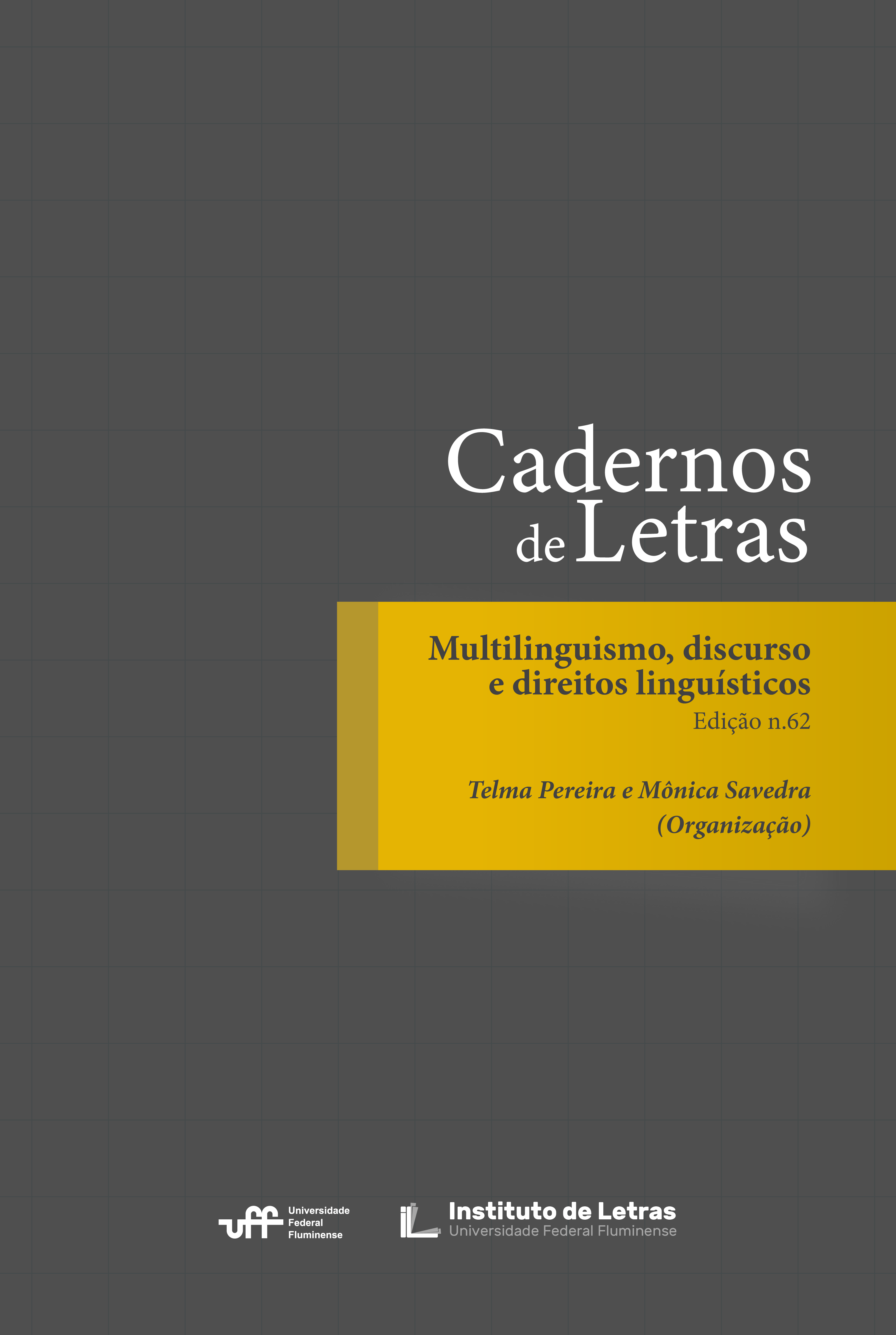Descolonialidade e linguagem na educação: transgredindo os limites da língua na África do Sul
DOI:
https://doi.org/10.22409/cadletrasuff.v32i62.47409Resumo
Este capítulo se baseia na teorização da descolonialidade para mostrar como a língua(gem) na educação política na África do Sul continua a ser moldada por uma "matriz colonial de poder" (Mignolo, 2009). Isso leva ao silenciamento das crianças africanas e sua exclusão de uma educação de qualidade. O capítulo argumenta que transgredir socialmente limites de língua(gem) construídos e provocar ideologias linguísticas monolíngues é central para o reposicionamento da língua como um recurso de aprendizagem na escolaridade sul-africana. A primeira parte do capítulo analisa ideologias linguísticas presentes nas políticas e currículos educacionais na África do Sul. A análise mostrará como anglonormatividade (a expectativa de que as pessoas são ou devem ser proficientes em inglês e são consideradas deficientes, até mesmo desviantes, quando não são) e as ideologias monolingualistas moldam a implementação atual da política linguística nas escolas sul-africanas. A segunda parte do capítulo apresenta um estudo de caso da língua descolonial e a pedagogia do letramento que transgride as fronteiras linguísticas permitindo que as crianças utilizem seus repertórios linguísticos como recursos para uma construção de sentido.
Downloads
Downloads
Publicado
Edição
Seção
Licença
Copyright (c) 2024 Cadernos de Letras da UFF

Este trabalho está licenciado sob uma licença Creative Commons Attribution-NonCommercial 4.0 International License.
Autores que publicam em Cadernos de Letras concordam com os seguintes termos:
Os autores mantêm os direitos e cedem à revista o direito à primeira publicação, simultaneamente submetido a uma licença Creative Commons CC-BY-NC 4.0, que permite o compartilhamento por terceiros com a devida menção ao autor e à primeira publicação pela Cadernos de Letras.
Os autores podem entrar em acordos contratuais adicionais e separados para a distribuição não exclusiva da versão publicada da obra (por exemplo, postá-la em um repositório institucional ou publicá-la em um livro), com o reconhecimento de sua publicação inicial na Cadernos de Letras.






